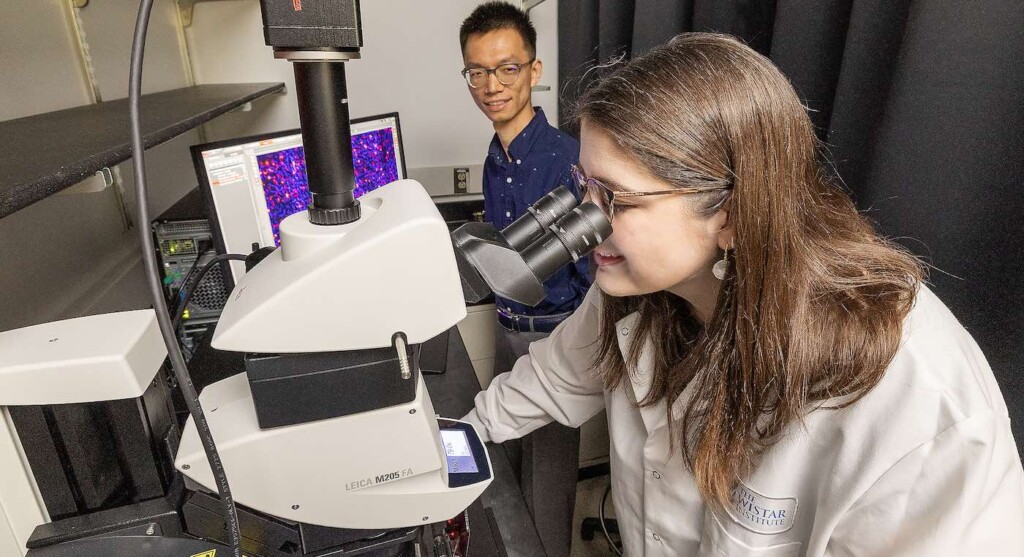

A new combination led to tumor regression in preclinical laboratory trials by scientists at the nonprofit Wistar Institute in Philadelphia.
Ovarian cancer is the deadliest gynecological cancer, with low survival rates because it is naturally resistant to chemotherapy, so its presence is difficult to combat anywhere in the body.
Cancer tends to metastasize into the peritoneal fluid present in the peritoneal cavity, around the stomach and intestines, which is naturally immunosuppressive and therefore limits the body’s response to any tumor.
To combat this challenging cancer, Nan Zhang, Ph.D., and colleagues turned to a possible solution dating back nearly a century.
In the late 1800s and early 1900s, New York surgeon William B. Coley achieved a cure rate greater than 10 percent for certain cancers by injecting patients with dead pathogens. Scientists then reasoned that this anti-cancer effect was the result of the immune system’s activation of myeloid cells (the abundant cells in the peritoneal cavity) which, when activated, can trigger an anti-cancer response.
Building on this concept, Zhang’s team designed an approach that specifically activates myeloid cells in the peritoneal cavity through combined treatment with beta-glucan, a pathogen-derived activator of myeloid cells, and interferon gamma (IFNγ).
Preliminary reports suggest that the approach may help reverse immunosuppression around tumors, leading to positive outcomes.
DID YOU KNOW? Frequent aspirin use linked to lower risk of ovarian cancer in women most likely to develop the disease
Their discoveries, published in The Journal of Experimental Medicine confirmed that this combination therapy worked when tested in preclinical laboratory models. After treating metastatic ovarian cancer models with β-glucan and IFNγ, total tumor burden “significantly decreased” compared to controls.
Disease reversal was consistent even in chemotherapy-resistant ovarian cancer strains, which the team also modeled.
Supported by grants from the National Institutes of Health, the team announced its new approach on November 21, saying its discovery for treating ovarian cancer “shrinks tumors and improves survival rates, while making tumors more receptive to chemotherapy treatment.
“Our work has opened the door to a possible new method of treating a particularly aggressive cancer,” said Brennah Murphy, Ph.D., first author of the paper. “Ovarian cancer is known to be resistant to treatment, but we have demonstrated – at the preclinical level – that our treatment overcomes this resistance.
REVELATION OF OVARIAN CANCER: Vitamin D may help protect women from, or even reverse, ovarian cancer – study

“This is the first time that researchers have managed to indirectly target ovarian cancer cells present in peritoneal fluid by inducing an immune reaction, in preclinical models,” Zhang said.assistant professor in the molecular and cellular oncogenesis program at the Wistar Institute.
“We look forward to continuing this research, particularly our findings on the role of IL27, so that we can continue to identify additional strategies to improve this novel anti-ovarian cancer approach.”
ANNOUNCE THE BREAKTHROUGH By sharing with patients on social media…






